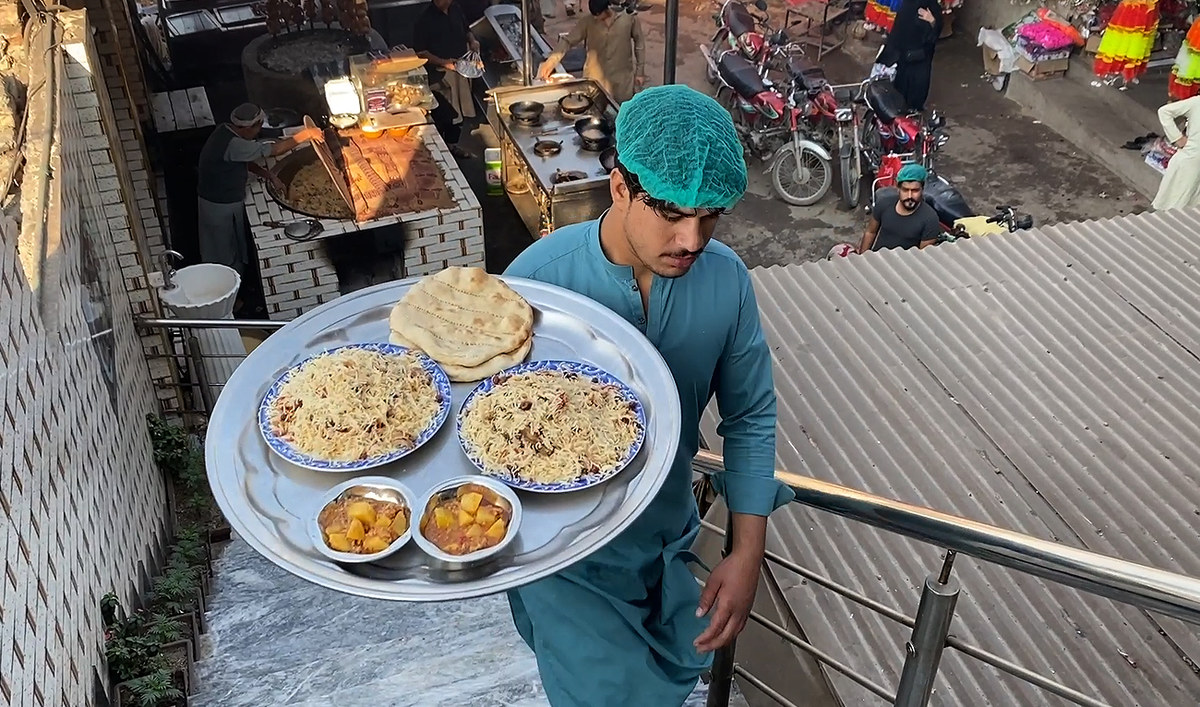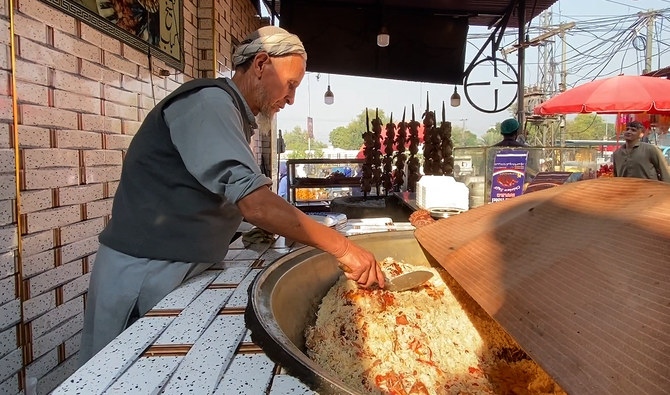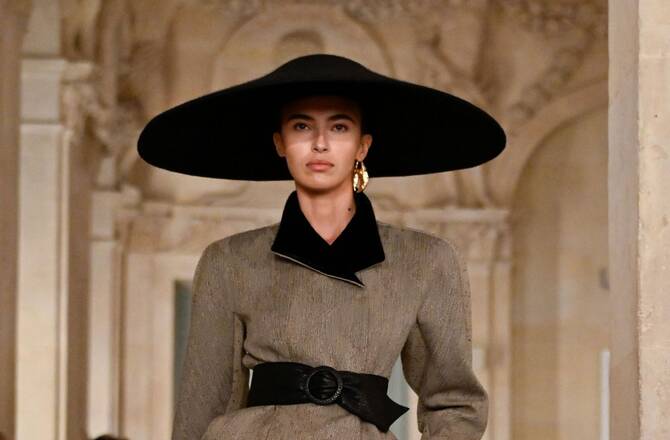PESHAWAR: Muhammad Khudadad stood before a huge cauldron at a hotel in the northwestern Pakistani city of Peshawar earlier this month, piling up a special rice delicacy onto plate after plate and passing it along to a line of expectant waiters.
Though the 67-year-old master chef has treated generations in the historic city to his famed Kabuli Pulao, these days he is worried about the future. Over 300,000 Afghans have been forced to return to their home country since last month when Pakistan launched a nationwide crackdown on undocumented foreigners, which has mainly affected about 1.7 million Afghans who fled their homeland during the 1979-1989 Soviet occupation of their country and after the Taliban takeover of Kabul in 2021.
With the influx of millions of Afghans in Pakistan, restaurants across Pakistan have for decades been serving Afghan dishes such as the Kabuli Pulao, which is steamed rice mixed with caramelized, finely chopped carrots, raisins and chunks of slow-cooked buffalo meat.
In Peshawar, the famed Board Bazaar, or ‘Mini Kabul,’ is home to some 6,000 shops, nearly all run by Afghan refugees, including the Kabul Hotel where Khudadad has worked as a chef since he migrated to Pakistan in his twenties. The restaurant, which was established in the early 1980s, is famous for its Kabuli Pulao.
“It has been 40 years since I came to Pakistan and I have lived as a refugee here in a camp and in [Peshawar] city,” Khudadad, who hails from the Afghan provine of Kunduz, told Arab News.
He returned to Afghanistan in 2005, but was compelled to return within two years by the hotel owner so he could keep making his special Kabuli Pulao.
“I even went to Afghanistan, but people would call me to come back saying that the business of the hotel was bad.”
Years later, hundreds of customers still show up daily to buy Khudadad’s Kabuli Pulao.
“I have had a shop in Board Bazar for 17 years and I come here [often],” customer Hizb Ullah told Arab News. “There are many hotels, but I come here because their pulao is famous.”
One version of the dish is called ‘Uzbeki Pulao.’
“In Kabuli [Pulao], the carrots and raisins are cooked in a different utensil, whereas in Uzbeki Pulao, everything is cooked in the same pot,” Khudadad, a Dari-speaking Uzbek-Afghan, explained.

In this photograph taken on November 16, 2023, a staffer of a local restaurant carries a platter of Afghanistan's popular "Kabuli Pulao" to serve customers in Peshawar. (AN Photo)
Food critics say it is difficult to track the exact arrival of Kabuli Pulao in Pakistan, but most agree it became part of mainstream Pakistani cuisine after the arrival of Afghan refugees in the 1980s.
“We know that Pakistan and Afghanistan have a deep, shared history. In fact, many communities that live along the Pakistan and Afghanistan border felt that they were artificially split by the 1893 Durand Line. So, it is hard to say when exactly it came here,” Maryum Jilani, food writer and founder of the award-winning blog, Pakistan Eats, told Arab News.
“It could have been here long before the partition [of India in 1947], but we do know that it achieved mainstream recognition following the arrival of Afghan refugees, especially during the 1990s when they began to come in much larger numbers. Since then it has just become an integral part of Pakistani food culture so much so that Kabuli Pulao is the dominant Pulao in Peshawar even though it is technically not native to the city.”
But now the pulao’s future in the city, just like Khudadad’s, is under threat.
The chef said he considered Pakistan his home but the threat of deportation looms as he is unregistered and doesn’t hold a Proof of Registration (PoR) document or an Afghan Citizenship Card (ACC).
“I have worked in Kohat, Lahore, Hangu, Spenghar (a restaurant in Kohat), and in Rawalpindi and in Peshawar,” the chef said. “The hujras [living room for men] of Pakistanis are open for me, everyone offers me to spend the night with them. If I am short of money, they give me.”

In this photograph taken on November 16, 2023, a man along with his child eats Afghanistan's popular "Kabuli Pulao" at a restaurant in Peshawar. (AN Photo)
But now he no longer feels welcome here:
“I have been working here till now, rest Allah can do everything, whether I would return [to Afghanistan] or stay here.”
Customers also expressed sadness over the exodus of Afghans from the city and the prospect of their favorite chef leaving.
“I feel that people [in Pakistan] will remember that Afghans once lived here,” said customer Muhammad Shakirullah, “and served us such beautiful food.”













